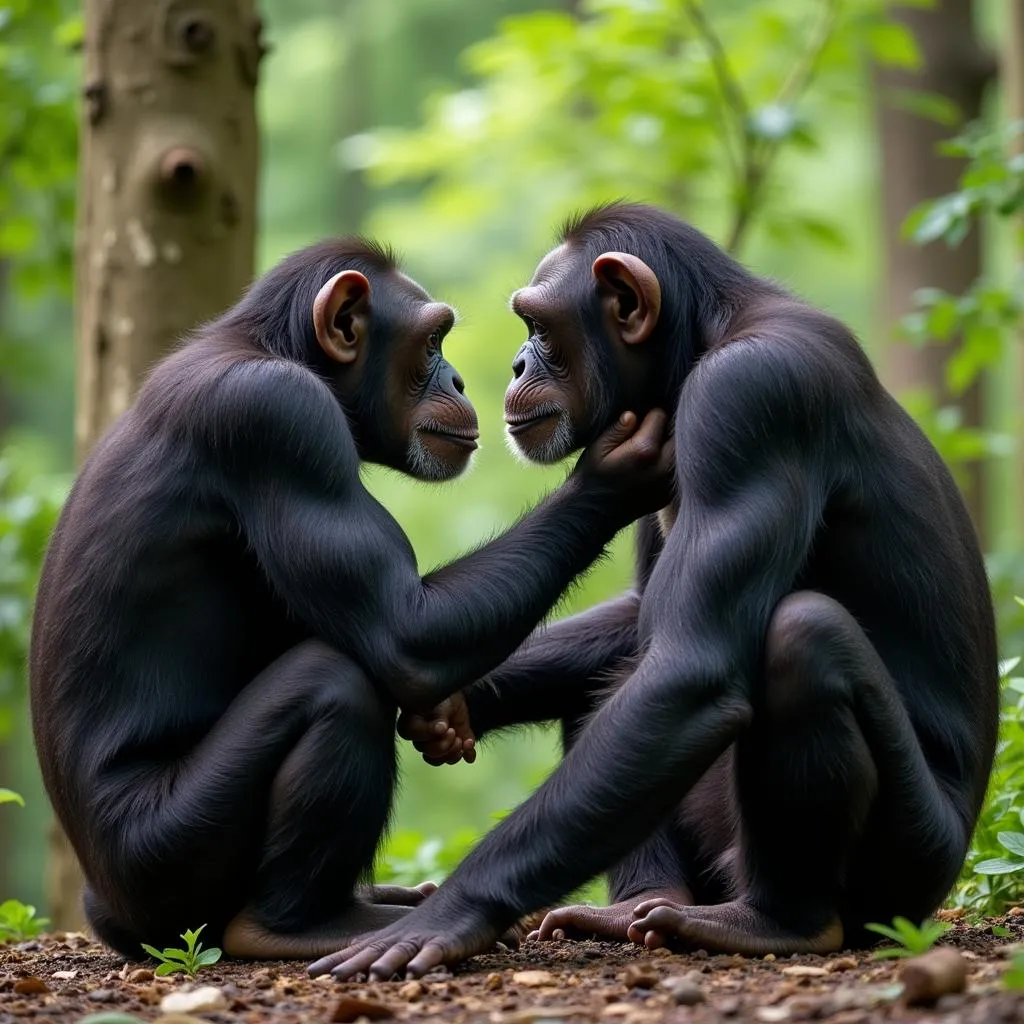The Mysterious African Dog That Doesn’t Bark
The African dog that doesn’t bark, also known as the Basenji, is a unique and fascinating breed with a rich history and distinctive characteristics. These dogs are known for their unusual yodeling sound rather than a traditional bark, making them a captivating subject for dog lovers and those interested in African culture. Let’s delve into the world of this remarkable canine.
Unveiling the Basenji: An Ancient Breed
The Basenji’s origins can be traced back to Central Africa, specifically the Democratic Republic of Congo. For centuries, they have been valued as hunting dogs by various tribes. Their silence in the hunt proved invaluable, allowing them to stalk prey undetected. Their history is intertwined with the rich tapestry of African culture, and they are often depicted in ancient Egyptian art. This close relationship with humans has shaped their temperament and characteristics over generations. Learn more about other African dog breed that doesn& 39.
Why the Basenji Doesn’t Bark: A Look at Their Vocal Cords
The Basenji’s inability to bark stems from the unique shape of their larynx. Unlike other dog breeds, their vocal cords are flat and narrow, preventing them from producing the typical barking sound. Instead, they emit a unique yodeling or chortling sound, sometimes referred to as a “baroo.” This distinctive vocalization adds to their mystique and makes them instantly recognizable.
Basenji Temperament and Care: A Guide for Potential Owners
Basenjis are known for their intelligence, independence, and playful nature. They are also meticulous groomers, much like cats. Their short coat requires minimal grooming. However, their independent nature can sometimes make training a challenge. They thrive on mental stimulation and require consistent exercise. Understanding their unique temperament is crucial for potential owners to ensure a harmonious relationship. Interested in other African canine companions? Check out the African bon bon dog.
What makes a Basenji a good family pet?
While their independent spirit might seem daunting, Basenjis can make wonderful family pets. They are affectionate and loyal, and their playful nature makes them great companions for active families.
Basenjis in Modern Times: Preserving the Legacy
Today, Basenjis are cherished as companion animals worldwide. Efforts are being made to preserve their unique lineage and cultural significance. Breeders and enthusiasts work diligently to maintain the breed’s health and temperament, ensuring the African dog that doesn’t bark continues to thrive for generations to come. You might be surprised to learn about the African barkless dog.
Are Basenjis prone to any specific health issues?
Like all breeds, Basenjis can be prone to certain health conditions, such as Fanconi syndrome and progressive retinal atrophy. Reputable breeders screen their dogs for these issues to minimize the risk.
Conclusion: The Enduring Allure of the Basenji
The African dog that doesn’t bark, the Basenji, captivates us with its unique vocalization, rich history, and independent spirit. From its ancient roots in Africa to its modern role as a beloved companion, the Basenji continues to fascinate and inspire. Understanding their specific needs and characteristics is essential for those considering welcoming this extraordinary breed into their lives.
FAQ
- Do Basenjis make good apartment dogs? Yes, their relatively low-energy needs indoors make them suitable for apartment living, provided they get sufficient daily exercise.
- Are Basenjis good with children? With proper socialization, they can be good with children, but supervision is always recommended.
- How much exercise does a Basenji need? They need moderate daily exercise, including walks, playtime, and mental stimulation.
- What is the lifespan of a Basenji? Their average lifespan is 12-16 years.
- Are Basenjis easy to train? Their independent nature can make training challenging, requiring patience and positive reinforcement methods.
- Do Basenjis get along with other pets? Early socialization is key. They can get along with other pets, but introductions should be gradual and supervised.
- How much do Basenjis cost? The price of a Basenji puppy can vary depending on the breeder and lineage, typically ranging from $800 to $2000.
For those interested in exploring Africa’s diverse wildlife and culture, consider African budget safaris tanzania or African budget safaris kruger.
Need assistance or have questions? Contact us at Phone: +255768904061, Email: kaka.mag@gmail.com or visit us at Mbarali DC Mawindi, Kangaga, Tanzania. Our customer service team is available 24/7.


